3.2.31. Meter grid
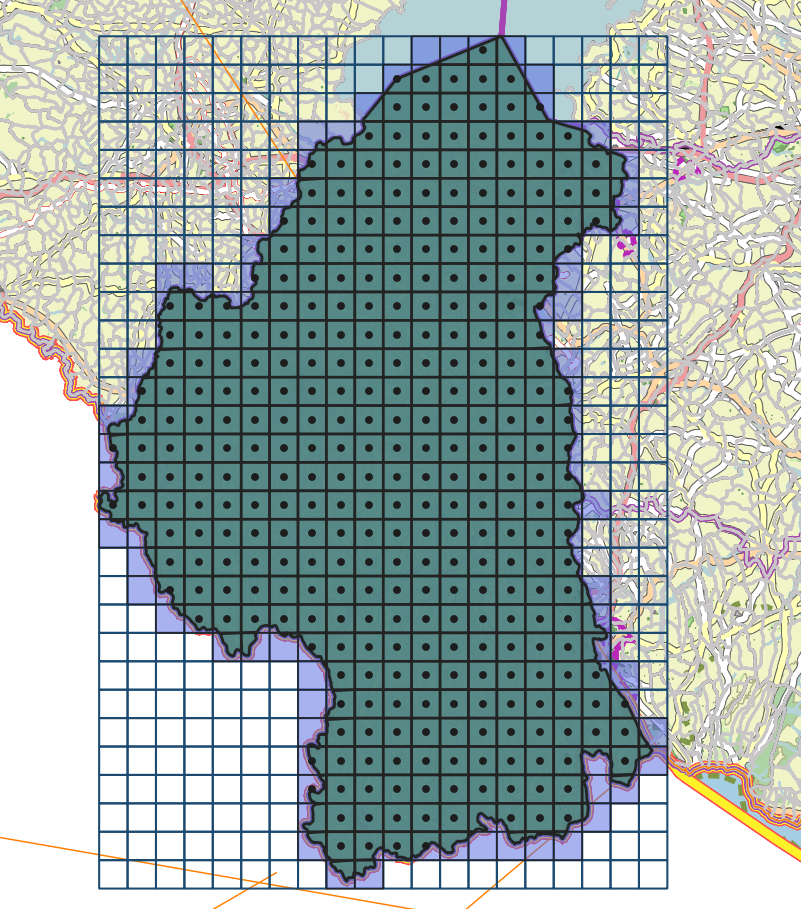
Pic. 3.26. A combination of generated grids
The tool generates a grid within the boundaries of features of a vector layer or a bounding box. The grid size is set in meters. Features can be anywhere in the world.
Inputs:
Step. Grid cell size in meters;
Mode. Squares or points. Default: points;
Clip. How to clip the grid: 1) By feature boundaries, 2) Keeping all grid cells that intersect boundaries, 3) Keeping all grid cells in the extent;
Boundary polygon vector file in Geopackage format. Multipolygons are supported. Calculation time depends on the number of nodes in the boundary layer;
Extent. Set the extent on the map or upload as file;
Grid alignment. Mode of clipping edges of grid. 1) Vertical - the grid looks vertical in WGS 84 (EPSG:3857) projection, but angles and distances may be distorted.; 2) Precise - a grid with more precizely matching angles and distances, however it will look tilted in EPSG:3857.
Output:
GeoPackage containing the grid. Each cell/point of the grid has the following attributes: number (cells are numbered vertically, top to bottom, left to right, starting with the first left column even if it doesn’t reach the top), row_index and col_index. To display the numbers, enable lables in the layer style settings and select the desired attribute.
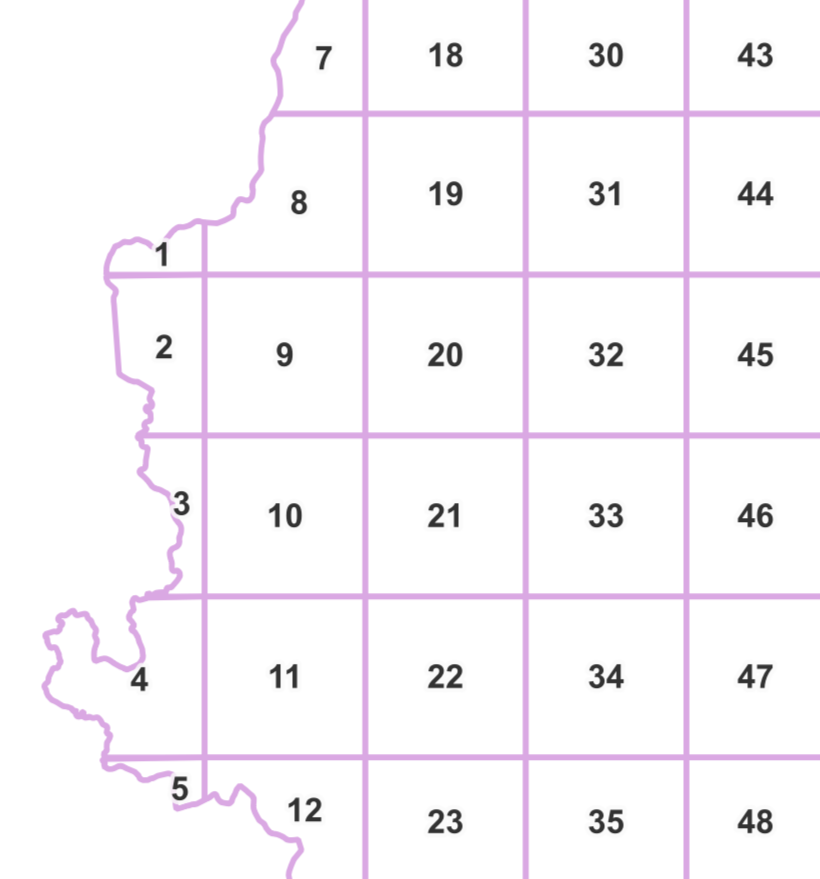
Pic. 3.27. Cell numbers displayed
Resulting grids with different settings:
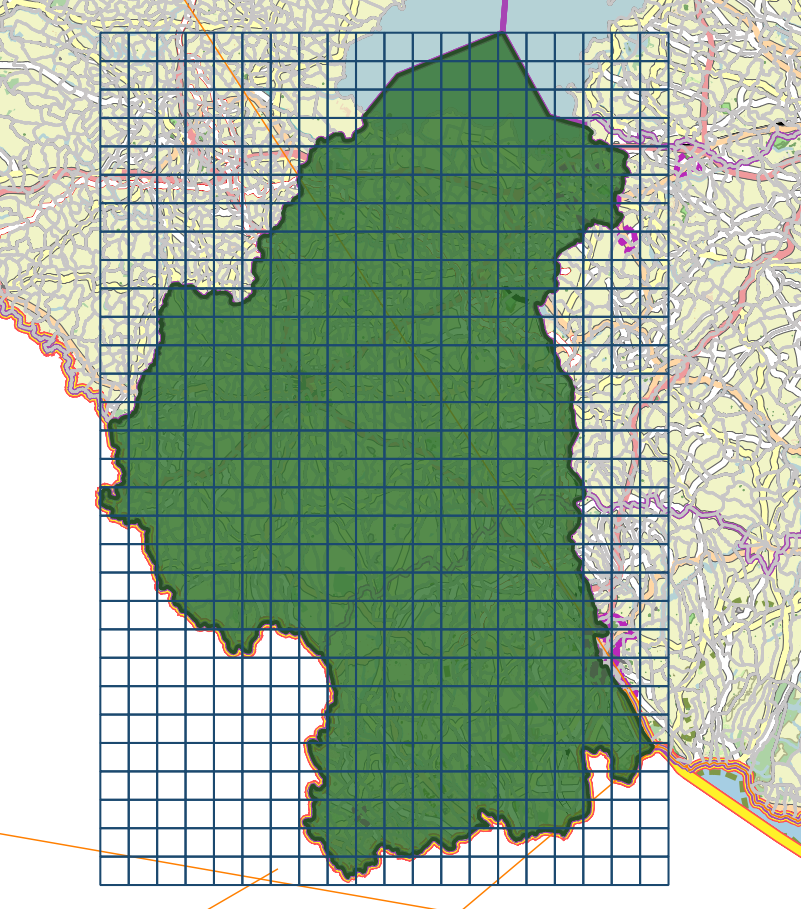
Pic. 3.28. Squares - all
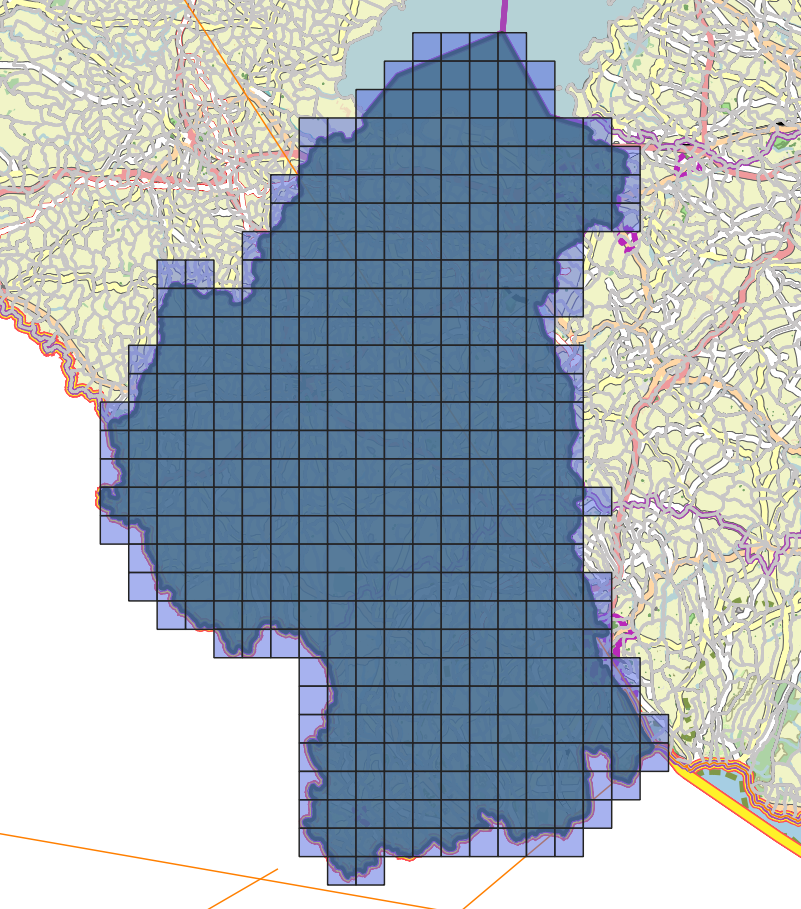
Pic. 3.29. Squares - including all intersecting
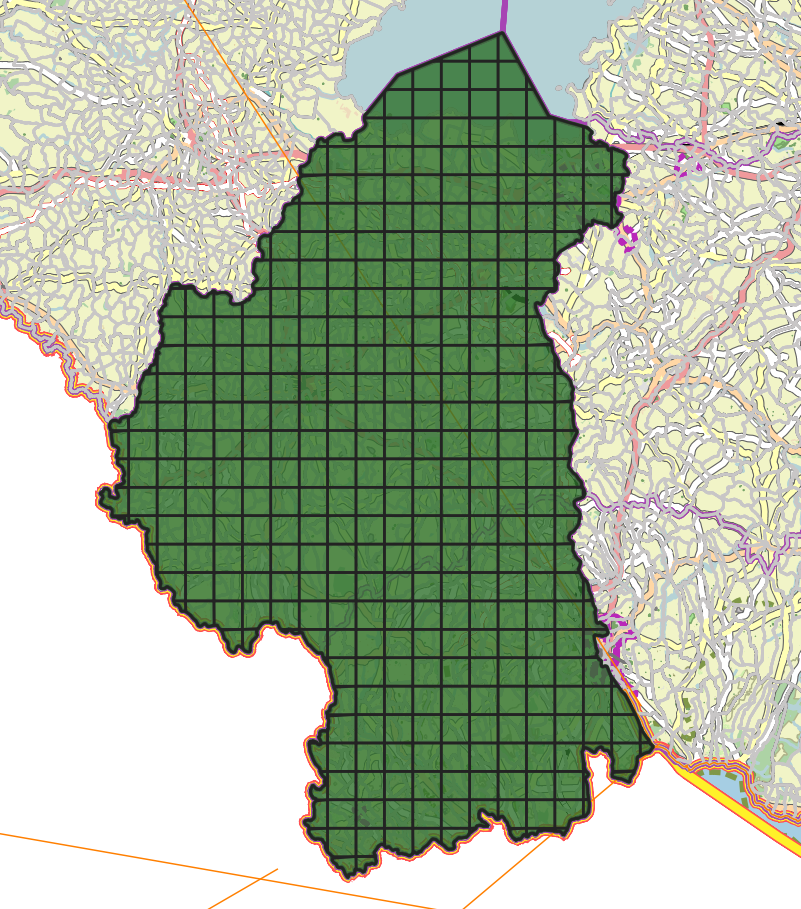
Pic. 3.30. Squares - clipped by the boundary
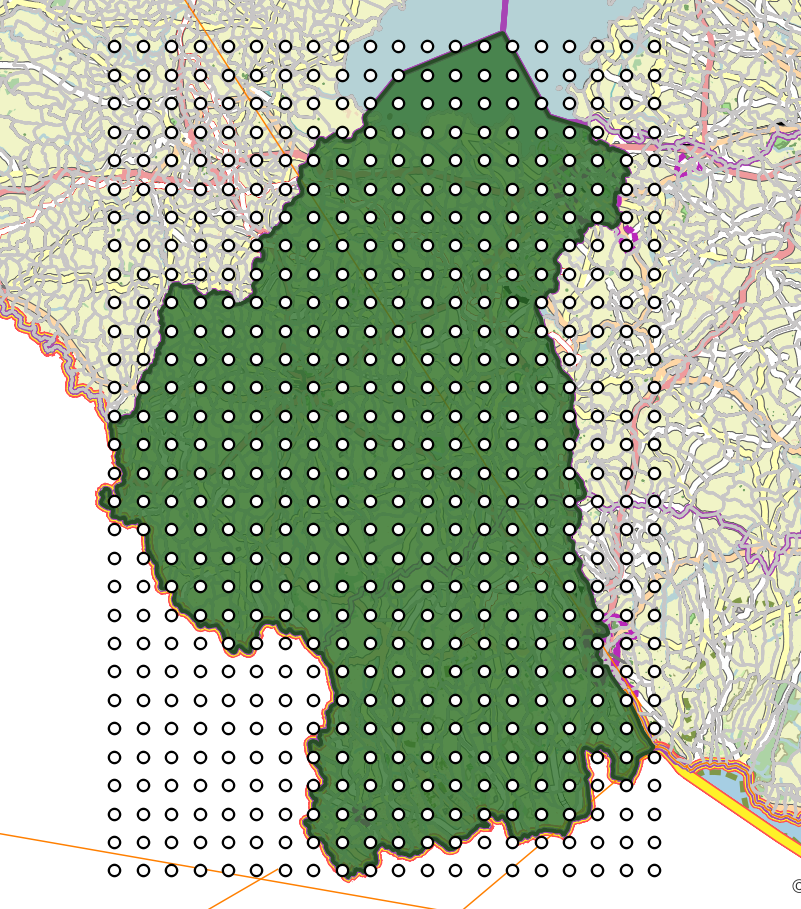
Pic. 3.31. Points - all
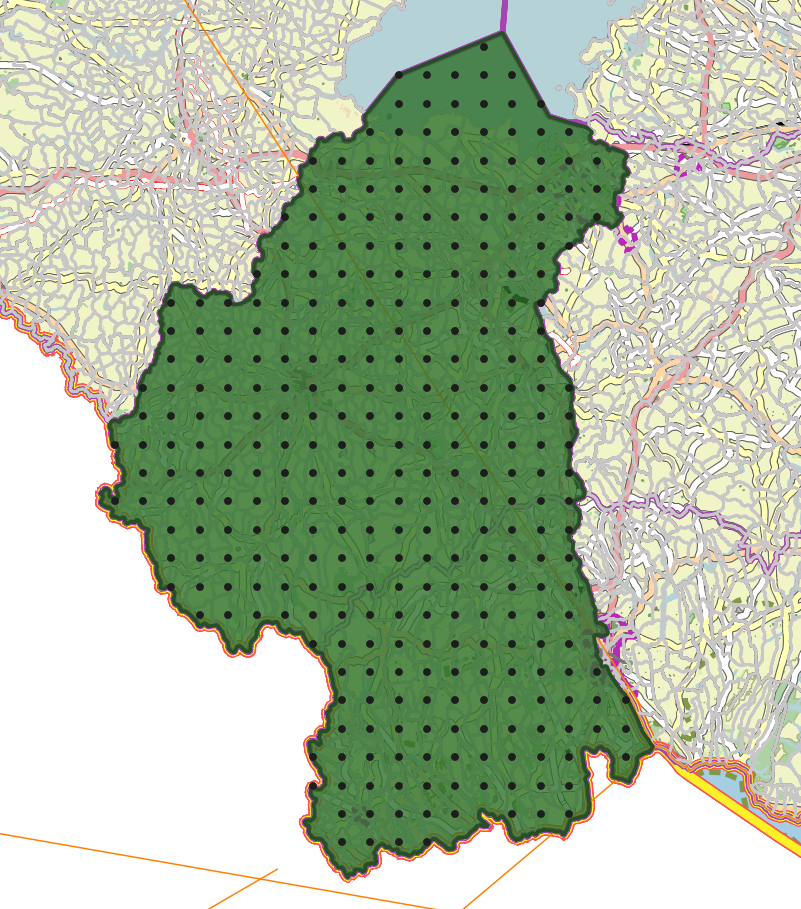
Pic. 3.32. Points - clipped by the boundary
Launch the tool: https://toolbox.nextgis.com/t/grid
Try the tool in action
Click on the Demo button above the tool form. The fields are filled in with demo values.
Click on the Run button.